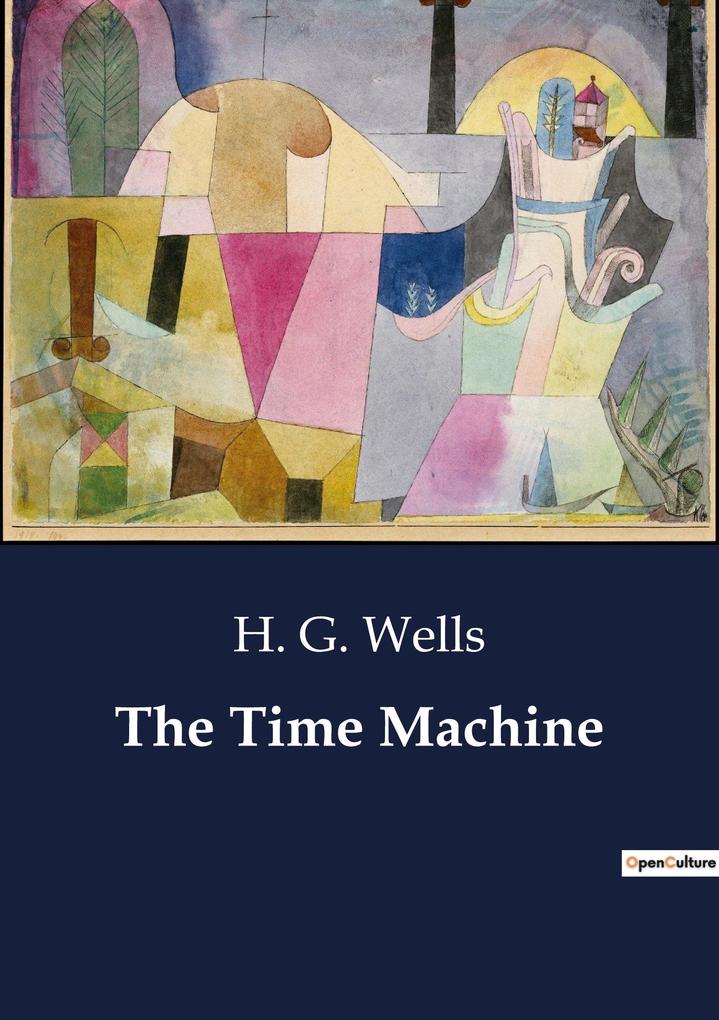Bücher versandkostenfrei*100 Tage RückgaberechtAbholung in der Wunschfiliale

Zustellung: Sa, 05.04. - Di, 08.04.
Versand in 2 Tagen
VersandkostenfreiBestellen & in Filiale abholen:
The Time Machine is a classic science fiction novel written by H.G. Wells, one of the seminal figures in the English literature classics. This masterpiece stands as a cornerstone of the time travel literature genre. Set in Victorian England, the story encompasses a compelling blend of futuristic dystopian visions and social commentary, making it an enduring part of Victorian era sci-fi.
The novel unravels the adventures of an unnamed Time Traveler who invents a machine enabling him to explore different epochs. His journey takes him to the year 802,701 AD, where he encounters the Eloi and the Morlocks, two distinct human derivatives. The Eloi, simple and peaceful, lead a life devoid of hardship or want, illuminating a potential future shaped by humanity's unchallenged progress. In contrast, the underground-dwelling Morlocks, emerging only at night, represent a bleak vision of the future. They breed the Eloi like livestock, turning them into prey - a stark representation of intensified class differences echoing the echoes of the industrial revolution, falling under the category of social commentary novels.
The Time Traveler's subsequent expedition to Earth's dying days, orbiting a giant red sun with scant signs of life, cements this novel's standing among futuristic dystopian books. "The Time Machine" remains a profound critique of societal evolution, the concept of progress, and human nature's uncertainty, making it a must-read for enthusiasts of the genre.
The novel unravels the adventures of an unnamed Time Traveler who invents a machine enabling him to explore different epochs. His journey takes him to the year 802,701 AD, where he encounters the Eloi and the Morlocks, two distinct human derivatives. The Eloi, simple and peaceful, lead a life devoid of hardship or want, illuminating a potential future shaped by humanity's unchallenged progress. In contrast, the underground-dwelling Morlocks, emerging only at night, represent a bleak vision of the future. They breed the Eloi like livestock, turning them into prey - a stark representation of intensified class differences echoing the echoes of the industrial revolution, falling under the category of social commentary novels.
The Time Traveler's subsequent expedition to Earth's dying days, orbiting a giant red sun with scant signs of life, cements this novel's standing among futuristic dystopian books. "The Time Machine" remains a profound critique of societal evolution, the concept of progress, and human nature's uncertainty, making it a must-read for enthusiasts of the genre.
Produktdetails
Erscheinungsdatum
11. Mai 2023
Sprache
englisch
Seitenanzahl
112
Autor/Autorin
H. G. Wells
Verlag/Hersteller
Produktart
kartoniert
Gewicht
157 g
Größe (L/B/H)
210/148/7 mm
Sonstiges
Paperback
ISBN
9791041806850
Entdecken Sie mehr
Bewertungen
0 Bewertungen
Es wurden noch keine Bewertungen abgegeben. Schreiben Sie die erste Bewertung zu "The Time Machine" und helfen Sie damit anderen bei der Kaufentscheidung.








